Battalions - advanced troops of Western democracy
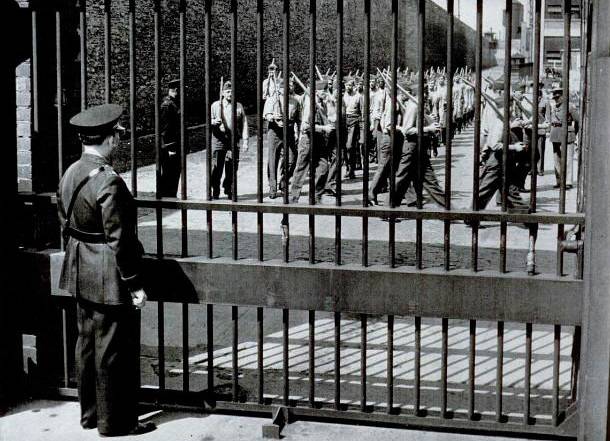
Penalty units were widely used by all European powers for predatory purposes.
Our liberal public is very fond of mentioning penal battalions out of place and out of place, which were formed from prisoners and convicts to defend the Fatherland during World War II, as an alternative to a prison sentence. As part of rewriting stories and representations of Russia as a barbarian state, and Russians as genetic killers, tons of books were written and rolls of movies and serials were shot. What kind of legends hasn't a history of penal battalions accumulated over the years in 70? But the essence of all these legends comes down to one thing - only the Russians could invent and put this into practice. At the mention of the penal battalions, our children call, above all, the Red Army. But is it? Did the Russians really make this invention and apply it for the first time in history?
Great Britain battalions
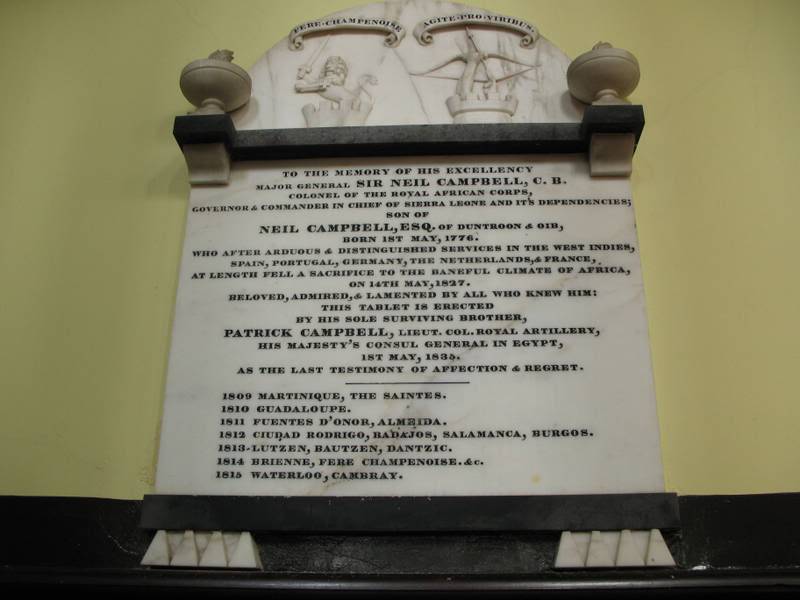
The topic is so significant for creating state ideological myths that there is almost no mention of penal divisions and units used by the West in the Russian infosphere. And in English you need to work hard to get any information on this topic. For example, the English-language Wikipedia, as opposed to the many pages devoted to the White Helmets' repeated rescues of the same girl in Syria, The Royal African Corps devotes only the 3 line to the first penal division of the modern world:
“The Royal African Corps was part of the British Army. 25 was officially created on April 1804 of the year as the Fraser Infantry Corps for the defense of the island of Goree in Senegal, which began in August of 1800. The corps was one of several penal units, consisting mainly of deserters and suicide bombers, and it was staffed, including black natives. "
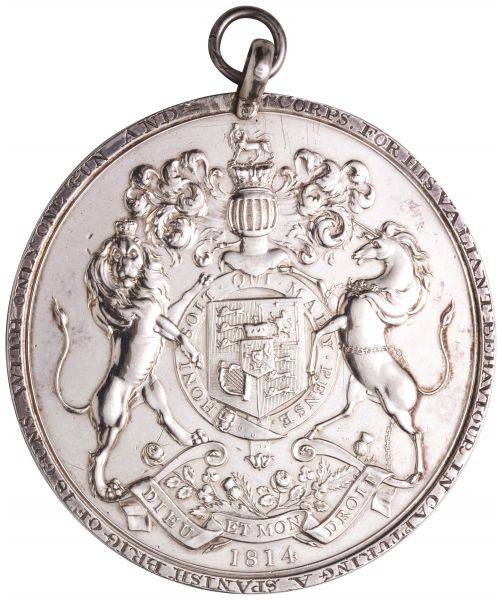
And everything, no more words, no lines. Which is typical, Western researchers are also faced with great difficulty in finding information about The Royal African Corps. The network has created several forums where ordinary people, within the framework of genealogical work, are trying to learn about the life of their ancestors who have passed through penal units in different periods of history. The archives of Great Britain and the United States were so cleaned up that they are now creating sites that search for any information about the functioning of the penal divisions. Moreover, these erasures began not yesterday, but immediately after the dissolution of these units. Mentions of service in the penal battalions were thoroughly washed out, the participants were deprived of pensions and allowances and were listed in the archives as ordinary veterans. And all because the practice of the penalty battalions already in the 19 century did not fit the ideological paradigm of the Western world, as a society of freedom, democracy, tolerance and justice.
You will be surprised, but the roots of the creation of fine battalions lie far in the past, in the system of forced labor migration of the British Empire. During the period of 1519-1939, according to the researchers, 5 300 000 of “unfree” migrants were transported to the colonies on British ships. Most of them, 58%, were slaves. Of the remaining, 36% were attendants and 6% prisoners. The number of convicts transported to colonies during this period is estimated at 317 600 prisoners.
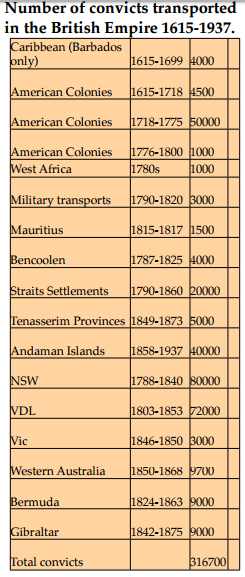
Since there was a catastrophic shortage of people to conquer and assimilate numerous colonies, King Yakov I passed a law in 1615, which gave the courts the discretion to defer criminals, provided they were sent to the colonies for labor, service and other services. This law also gave legal grounds for the creation of convicted military units and subunits.
By the beginning of the XIX century in the British army has developed a terrifying situation. For months, the soldiers were not paid a monetary allowance; for the slightest offense, soldiers were mercilessly punished and were practically in the position of slaves. Moreover, for the conquest of new colonies did not have enough troops. The use of the death penalty was widely practiced in the army, and punishment in 200 or 300 punches with sticks was considered to be an ordinary punishment. For example, in the volunteer units of the army serving in Canada, according to the "Law of Insurrection" the following punishments were used:
- mismatches in uniform - 100 lashes
- Poor shaving - 200 lashes
- for the wrong calculation of the necessary linen for the barrack - 400 lashes
- leaving the hut without leave - 300 lashes
Many soldiers could not stand the punishment lash and died. On one case, Quebec Gazette writes September 8 of the year 1766. The newspaper published a report on the inquest carried out on the body of Donald Mackenzie, a soldier who died as a result of a severe beating, received on the orders of a military court. In this case, the two officers who commanded during his sentence were found guilty of premeditated murder, but were not arrested. The chief judge of the king left them on bail, sending the case to the Supreme Court. The performers were exempted from liability on the grounds that they carried out the order. There have been cases in which soldiers were punished with lashes with 1500, which in practice meant a painful death.
Sentences were handed down by civilian courts. The severity of the sentences was such that the death penalty was imposed for the actions that are now being punished by 6 for the months of imprisonment. For example, the Quebec Gazette of 16, February 1767, writes that two soldiers of the 52 regiment were convicted by the civil authorities for burglary and sentenced to be hanged.
Naturally, the qualitative composition of the British army, as an ordinary, and officers, began to decline rapidly. According to the Duke of Wellington, in 1800, the British army consisted of "landfill". All these soldiers and officers became the basis for the formation of the British African Corps. Some soldiers went to serve there because of the promised benefits, allowances and rapid promotion. But the main contingent consisted of soldiers and officers convicted of various crimes. The officers were offered instead of punishment by a court service in the corps with a lower rank and half salary. Soldiers - simply as an alternative to the death penalty, or long years of imprisonment.
An example, the combat biography of General Edward Stopford:
Stopford, Edward (28 September 1766 - 14 September 1837)
Son of 2-th Earl of Courtown. The elder brother of Admiral Sir Robert Stopford.
Ensign 3-th Guards Foot 1784, lieutenant and captain 3 Foot Guards 1792, captain and lieutenant colonel 3-th Guards Foot 1798,
Brevit Colonel 1808, Brigadier General at 1811 Headquarters, Major General 1811, Lieutenant General 1821.
Colonel of the Royal African Corps 1818-1819
He was demoted from the Major General, redeemed the punishment by the service of a colonel in the Royal African Corps and again became a lieutenant-general, by whom he ended the service. For what "merit" Stopford was forced to serve in Africa, not reported.
The personality of the commander of The Royal African Corps is interesting. Sir Charles McCarthy (1769-1824) came from a family of Irish Jacobites who were expelled from England to France at the end of the 18 century. His father, whose name was Gueroult, was French, but McCarthy took his mother's last name. At the age of 18 for years, he became a soldier and served in the Irish brigade of the army of Louis XVI before the French Revolution. Being a Catholic who hates Republicans, he left France and joined the British army, served in Flanders, the West Indies and Canada. McCarthy commanded the Royal Afrika Korpus in Senegal in 1811, and was transferred to 1814 in Sierra Leone as lieutenant governor, promoted to full governor in 1815.
Of the famous wars, The Royal African Corps participated in the war in Sierra Leone, on the island of Goree, in a border conflict in South Africa near Cape, on an expedition on the Rio Nunes in Niger, Congo, Isle of Wight, Senegal and even in the West India As Roger Buckley writes in the book The British Army in the West Indies,
“Three penal regiments admitted to service in the West Indies were dissolved in 1819, four parts of the Royal African Corps were disbanded in West Africa. The remaining units were left in service until the 1821 year, when they were defeated in the Cape Colony. "
So ingloriously ended the history of the first in the modern world "penal battalion" - the Royal African Corps. He was sent to solve the dirtiest, dangerous and unpromising tasks. The “fighting path” of the corps was everywhere accompanied by looting, murder, rape of local residents, and, solving some tasks, the corps spawned others, even more ambitious.
Napoleon's Battalions
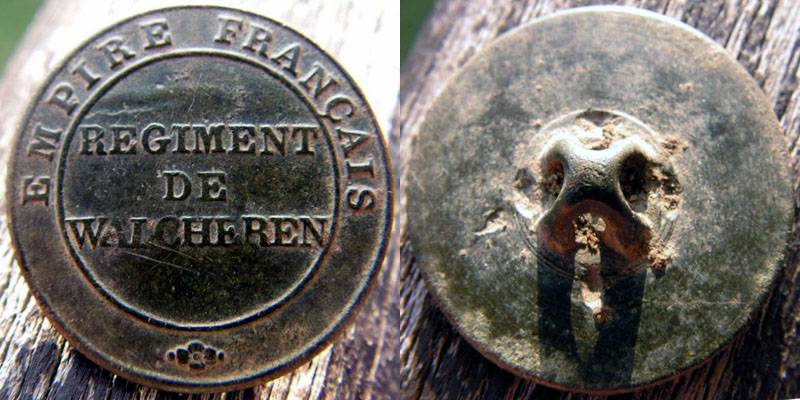
During the failed expedition of The Royal African Corps along the Congo River, when almost all were killed, naturalist Kristen Smith, on the orders of his commander James Takkey, kept a diary, the last lines of which read:
“The return journey was worse for us than the retreat from Moscow” (p. 222)
This document gives grounds to assume that along with the convicts, mercenaries, “soldiers of fortune” who smoothly flowed from the penal battalion of one country and another, participated in the “penal battalions”. Many mercenaries went to the service of the British crown from Napoleon's finals.
Back in the spring of 1811, Napoleon, anticipating a difficult Eastern campaign, began to form several penal regiments of malicious deviators and prisoners of war. Dodgers in France at that time was enough. It was the population of the province of Vendée, historically supporting the monarchy of the Bourbons, the recently annexed territories of Italy and Holland, as well as the indigenous France. Of this contingent, the 1 and 2 Mediterranean punitive regiments consisting of Italians and Corsicans, van Walheren from the Dutch, Ile de Ré and Ile de Belle from the French were formed. The officers were recruited from the French, who were transferred to the penalty shelves from the elite units of the guard and the army.
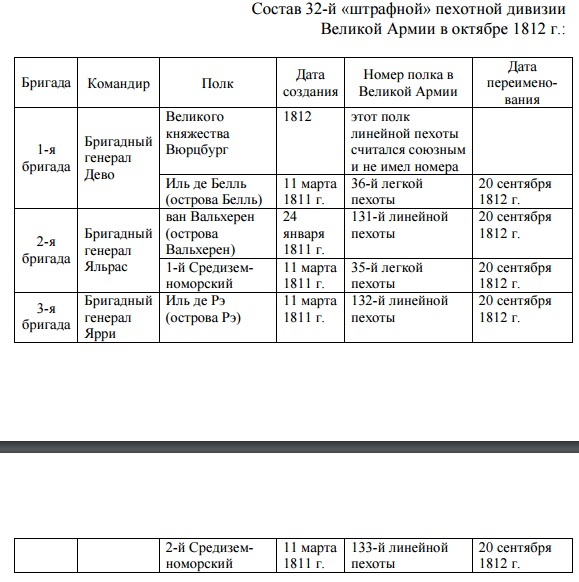
By the autumn of 1812, these regiments, plus German units, were merged into a division of 10 000 bayonets, which from Warsaw was thrown against the Russian corps under the command of General V.F. Osten-Sakena under the village of Small Lapinitsy. The fiercest battles took place at Volkovysk, where, despite relative success, the penalty regiments suffered very serious losses. Penalty regiments were not composed of elite infantry, grenadiers and voltezhirov, as well as artillery and cavalry. Therefore, it was hard for them to resist regular trained Russian troops.
The experience of formation of penal regiments was considered unsuccessful, and in 1813, the regiments were reformed.
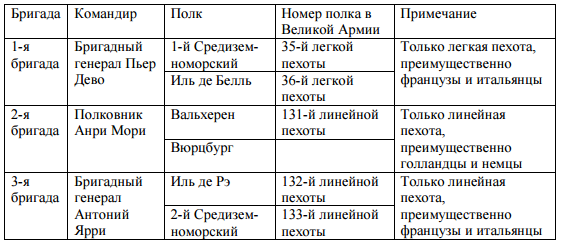
However, the penalty regiments did not have any significant impact on the course of the war and disappeared after the capture of Paris by Russian troops.
US Penalties
Mention of penal divisions in the US Army is almost completely removed from the official history, and all the facts of their existence, or disguised, or simply deleted from all documents. The official history of the United States doesn’t like to mention facts and events that are inconvenient for the current state ideology, such as human losses from hunger and disease in the amount of about 8 million during the Great Depression, or hundreds of thousands of US citizens of Japanese descent in concentration camps after Japan’s attack at pearl harbor. In the military archives of the United States there is no clear indication that one or another military unit consisted of prisoners and prisoners and was a penalty.
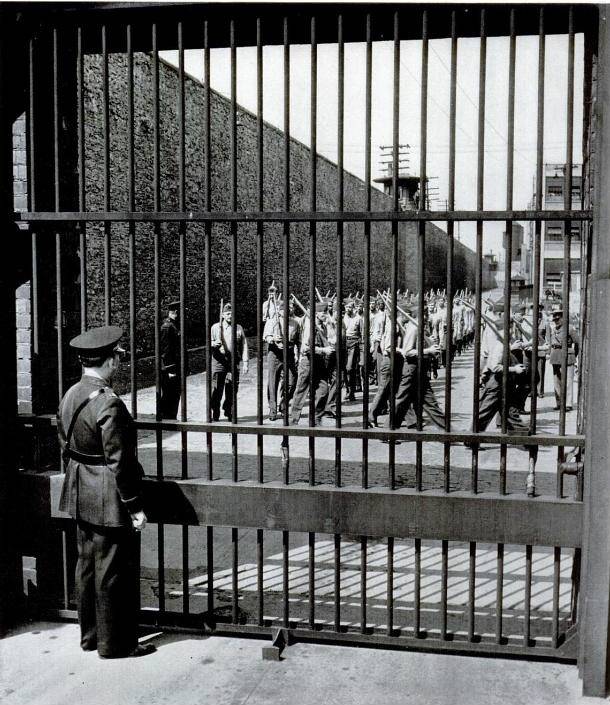

But some information about the fines was still preserved on the pages of the press. Here is the issue of LIFE magazine dated May 4, 1942, page 32, which contains a photo and text entitled "Training of Ohio Prisoners in Prison for a Battle in the Legion of the US Army." Finding the magazine itself on the Internet is very difficult, but possible. What is characteristic, on the next page, 33, photo numbers and an article entitled “The prison on the island has now turned into a reception center for naval recruits fleet USA".
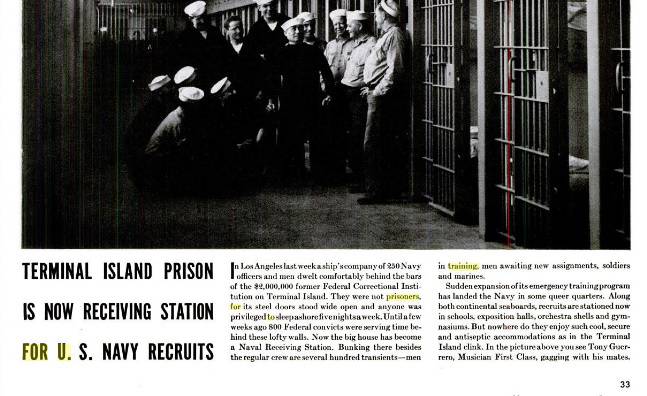
Other information about the presence of penal units in the United States could not be found, which absolutely does not mean that they were not in principle.
German penal battalions

Germany, perhaps, is the only western country where the presence of punitive units is not only hidden, but even promoted. All archives on this topic are fully open. There are many scientific papers and journalistic articles, the media publish materials on this topic with enviable periodicity. Apparently, this is happening for a simple reason, to make Germany a scarecrow of the West, blame it on all the sins of Western civilization, to settle itself, to destroy a strong geopolitical rival, to prevent the revival of Germany as one of the centers of world power.
I see no reason to retell common facts about the penal divisions of Germany during the Second World War. I want to dwell on only a few points.
The first penal unit in Germany appeared long before World War II, in 1936, from military prisoners convicted for political reasons. That is, those who disagreed with the policies of National Socialism. And there are more than 5 000 soldiers in such “political” penalty boxes in Germany.
In addition to military penal units that fought on the fronts, there were also so-called “military penal servitude”, “second class formations”, 999-e battalions and testing institutions of the Todt organization, which used hard labor to build various defensive structures in Germany. The soldiers in these units were called wehrunwurdig - "unworthy to wear weapon". In these organizations there was no rehabilitation and amnesty.
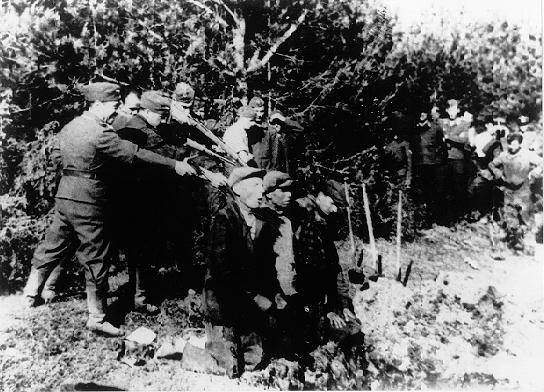
There were also punitive units performing the dirtiest job of exterminating the population of the occupied areas. It was a special unit called the SS Division Dirlewanger. Commanded a division of pedophile and psychopath Oscar Dirlenvanger. Sonderkommando personnel formed from murderers, rapists and robbers. After the massacres and acts of violence in Poland, the commander was awarded the Iron Cross. But in 1943, the zonder command was sent to the Eastern front, where it was very quickly defeated by regular units of the Red Army. In 1945, the unit in full force surrendered to the Americans, but even the Yankees simply shot everyone without trial.
It would seem that after the penalty teams of Germany it is impossible to think of anything more disgusting. But it turned out that it is possible.
Penalty of Ukraine
6 May 2014, the Verkhovna Rada of Ukraine adopted an amnesty law. This became a legal rationale for the creation of amnestied "volunteer" battalions to send them to the ATO zone. After the adoption of this law, Russian Foreign Minister Sergei Lavrov said:
“According to some information, about 15 of thousands of people fall under this amnesty, and they were released, tacitly making it join the National Guard”
Battalions of criminals were created both by the Ministry of Internal Affairs of Ukraine, and by the leaders of parties and social movements.
The leader of the Radical Party O. Lyashko said that among the fighters of the punitive battalion "Azov" half of the previously convicted. Interior Minister Arsen Avakov said that “Of the first 15 candidates checked for admission (one in the National Guard - author’s note) - one person is on the wanted list, 11 had outstanding convictions, including 4 with two convictions.”
According to the deputy of the parliament of Novorossia, Irina Popova, the leader of the “Right Sector” (banned in Russia) D. Yarosh ordered the destruction of personal files of various criminal elements:
“Subsequently, separate battalions were formed from among these elements. It was in March. Then it became quieter, but judging by how Ukrainian troops behaved in the Donetsk and Lugansk regions, there was no doubt that there were criminals in these battalions. ”
The apogee of such obscurantism was the dubbing on the Ukrainian 5 channel, owned by President Poroshenko, the idea of sending former and amnestied prisoners to the Donbass, to “atone for the blood”. With the blood of their own citizens, women, old people, children.
Everyone has heard atrocities, executions, extermination, rape, robbery and looting of members of the “volunteer battalions” Aydar, Azov, Donbass and others. Everyone saw caravans with stolen goods, which the punishers sent to the villages of Galicia and central Ukraine. A special inhuman cruelty was noted by the company "Tornado", so that even the Kiev junta was forced to put the tornadovts led by the commander in jail and start an investigation.
There are so many similar facts that you can write dissertations and studies on this topic. One thing is striking: the current puppet Kiev authorities have thought of a terrible thing - the use of penal units against their own people in a civil war. No other state in modern history has reached this point yet. The court of history will sooner or later condemn criminals, for such crimes do not have a statute of limitations.
The difference between the practice of applying the penal battalions of the USSR and Western countries is fundamentally opposite. If the fine battles in the USSR were created and applied to protect their homeland from external aggression and fought on their territory, the West battalions were created and used solely for conquering colonial purposes. The motivation of a significant part of the fighters of the penal battalions in the Red Army was humane and patriotic - the defense of their homeland. In the West, the penal battalions were mainly due to mercantile considerations, amnesty, material benefits and career advancement. Well, purely criminal motives moved the fighters of the punitive battalions in Ukraine.
The modern development of technologies and the practice of warfare completely exclude the use of penal units as combat units. Success in modern warfare depends on modern tactics and strategy, the saturation of modern weapons, the degree of interaction between the branches of service and subunits, the on-line guidance with the help of modern means of communication with combat units, and, of course, training, morale and motivation of soldiers. All these components are completely absent in the penal divisions. Therefore, it can be said with confidence that the penal battalions have no future, and they are a thing of the past, as an ineffective and bloody experience in the conduct of hostilities.
Used Books:
Wikipedia
"Unfree" labor migration within the British Empire
Royal African Corps 1809-1822
Napoleon Series Discussion Forum
MacCarthy, Charles 1769 to 1824
Historical records of the Royal African Corps
ARMY PUNISHMENTS
Wars in Sierra Leone
Forgotten Failures of African Exploration
"Roosevelt Penalty"
LIFE magazine from 4 May 1942 of the year 32 page
WREMACHT FIXED BATTLES.
Wehrmacht penal battalions
Penalty battalions go to the breakthrough ...
S.V.Donskikh "Napoleon's Penal Battalions"
The Royal African Corps. Gift for Valor, 1818
"Penalty" of criminals in the service of the Kiev regime
Marble tablet on the wall inside Kilmartin Kirk, Mid Argyll
Information